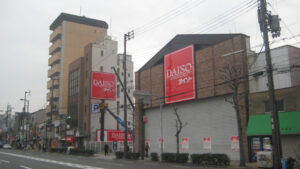For foreigners aiming to work in Japan, obtaining a work visa is the most important step. However, the types of visas, eligibility requirements, and application procedures can often be complex and difficult to understand. This article provides a clear explanation of the basic knowledge about work visas necessary to work in Japan, including the main types of visas and their requirements.
Contents
- 1 Basics and Types of Work Visas in Japan
- 2 Main Types of Work Visas
- 3 Qualifications Required for Obtaining a Work Visa
- 4 Work Visa Application Process and Required Documents
- 5 Working and Rules under a Work Visa
- 6 Latest Information and How to Utilize Support Systems
- 7 Summary of Key Points for Obtaining a Work Visa in Japan
Basics and Types of Work Visas in Japan
What is a Work Visa?
How Work Visas Function for Working in Japan
Foreigners wishing to work in Japan must obtain the appropriate residence status (visa). A work visa is an official permit that authorizes labor activities and is categorized in detail according to the type of work and occupation. Working without proper authorization is considered illegal employment and can result in legal penalties or deportation. Therefore, it is essential to obtain the correct work visa.
Main Types of Work Visas
The common work visas issued in Japan include the Engineer/Specialist in Humanities/International Services visa, Business Manager visa, Specified Skilled Worker visa, and Highly Skilled Professional visa. Each visa differs in terms of eligible occupations, permitted activities, duration of stay, and renewal conditions, so it is important to select a visa that matches your job duties.
Differences Between Work Visas and Other Visas
Work visas are issued for the purpose of employment in Japan, whereas student visas and tourist visas do not permit work. The scope of permitted activities differs greatly between work visas and non-work visas, so if you wish to work, obtaining a work visa is mandatory. If you hold a non-work visa and wish to work, you must apply for a change of residence status.
Main Types of Work Visas
Engineer/Specialist in Humanities/International Services Visa
This visa is issued to foreigners engaged in occupations requiring specialized knowledge or skills such as engineering, IT, interpretation and translation, marketing, and design. Applicants must meet academic and work experience requirements and have an employment contract with a company. Many foreign workers in Japan use this visa, which can be renewed and allows family accompaniment.
Business Manager Visa
The Business Manager visa targets foreigners who manage or operate businesses in Japan. Entrepreneurs and corporate executives fall under this category, with requirements including company registration and capital conditions. This visa is necessary for those who start their own business or manage existing companies, contributing economically to Japanese society.
Specified Skilled Worker and Highly Skilled Professional Visas
The Specified Skilled Worker visa is a new system targeting foreigners who work as immediate workforce in sectors facing labor shortages. Employment is allowed in 14 fields including nursing care, construction, and agriculture, with conditions such as passing skill tests and Japanese language proficiency exams. The Highly Skilled Professional visa is granted to specialists who meet strict standards such as academic background, work experience, and income, and offers preferential treatment for permanent residency applications.
Other Specialized Work Visas
Medical and Research Visas
Medical and research visas are for healthcare professionals such as doctors, nurses, pharmacists, and researchers at universities or research institutions. Applicants must have specialized qualifications and certain practical experience. In medical fields, obtaining Japanese medical licenses may also be required. These visas aim to accept highly specialized personnel and contribute to Japan’s medical and academic advancements.
Technical Intern Training and Nursing Care Visas
The Technical Intern Training visa is a program mainly for trainees from developing countries to acquire skills and knowledge in Japan. The goal is to improve skills before returning to their home countries. The Nursing Care visa targets foreigners working in the caregiving sector to address Japan’s aging society, requiring specific Japanese language ability and caregiving qualifications. Both visas have detailed conditions and duration limits.
Artistic, Journalist, and Religious Activities Visas
The Artistic visa is for individuals engaged in artistic activities such as painters, musicians, and writers. The Journalist visa is required for foreign journalists, photographers, and editors conducting reporting activities in Japan. The Religious Activities visa is for those affiliated with religious organizations involved in missionary work or religious events. These visas are limited to specific activities and require proven experience or affiliation in their respective fields.
Qualifications Required for Obtaining a Work Visa
Academic and Work Experience Requirements
Types of Required Academic Background
Most work visa applications require at least a university degree. Holding a degree or qualification related to the specialized field can be advantageous during the application process. Academic credentials obtained outside Japan are also accepted, but graduation certificates and transcripts must be submitted. For vocational schools or junior colleges, requirements vary depending on the type of work visa, so caution is necessary.
Importance of Work Experience
In addition to academic background, relevant work experience is highly valued. For visas such as Engineer/Specialist in Humanities/International Services and Specified Skilled Worker, a certain number of years of practical experience may be required. Applicants are expected to demonstrate their expertise and immediate work readiness by submitting detailed resumes and recommendation letters.
The Role of Skills and Qualifications
Skills and professional qualifications related to the job significantly support the visa application. Examples include IT certifications, language proficiency certificates, and licenses for specialized technical skills. Acquiring such qualifications is recommended as they complement academic and work experience and enhance the evaluation during the application review.
Language Proficiency and Other Requirements
Standards for Japanese Language Proficiency
The required level of Japanese language proficiency varies by job type and visa category. For example, the Specified Skilled Worker visa often requires passing a certain level of the Japanese Language Proficiency Test (JLPT). The Engineer/Specialist in Humanities/International Services visa typically requires sufficient Japanese ability to perform the job without issues. Some employers may require higher language skills.
Health Check Requirements
Health status is an important factor in visa screening. Applicants may be required to submit a medical certificate at the time of application or entry into Japan. Checks focus on the absence of infectious diseases or serious illnesses, and whether the applicant can receive treatment in Japanese medical institutions. Good health is essential for continuing employment in Japan.
Criminal Record Checks
Criminal history is strictly reviewed during visa screening. Having a serious criminal record can make obtaining a work visa difficult. Applicants must disclose any past criminal history or records held by immigration authorities accurately at the time of application. False or misleading information may result in application rejection or future entry bans.
Work Visa Application Process and Required Documents
Application for Certificate of Eligibility (COE)
How to Fill Out the Application and Submission
The Certificate of Eligibility (COE) application form must be accurately completed on the designated form specified by the Ministry of Justice. Applicants should carefully provide detailed information such as their personal details, purpose of stay, and employment information without errors. Typically, the application is submitted by the employing company or an authorized agent to the local Immigration Bureau. While individuals can apply on their own, it is recommended to seek professional support to prevent delays caused by incomplete or incorrect documents.
Details of Required Documents
Documents required for the COE application include the employment contract, company registration certificate, financial statements, job description, applicant’s passport copy, academic and work history certificates. Depending on the type of visa being applied for, additional documents may be required. All documents should be up-to-date and, if necessary, translated or notarized.
Review Period and Important Points
The COE review period typically takes between 1 to 3 months but may vary depending on the time of application and the review status. Delays may occur if there are deficiencies or questions regarding the documents, so thorough checks before submission are important. While it is possible to inquire about the application status during the review, excessive inquiries should be avoided, and appropriate responses should be made as needed.
Visa Application at Japanese Embassies and Consulates
Appointment Booking and Document Preparation
Work visa applications are made at Japanese embassies or consulates in the applicant’s country of residence. Many facilities require advance booking online or by phone, and applications without appointments are often not accepted, so prior confirmation is essential. On the day of application, bring the original Certificate of Eligibility (COE), passport, photos, and all required documents, ensuring everything is complete and in order.
Interview Process and Common Questions
Some embassies or consulates conduct brief interviews during the visa application process. Common questions relate to the applicant’s intended occupation, company details, plans for living in Japan, and proof of financial support. Examples include “Why do you want to work in Japan?”, “Tell us about your employer,” and “How will you cover your living expenses?” It is important to answer honestly and clearly.
Visa Issuance Period
Visa issuance typically takes from a few days to about two weeks but may vary depending on the application period and embassy workload. After applying, applicants should refrain from unnecessary travel and follow the embassy’s instructions for inquiries. If there are document deficiencies, additional submissions may be requested, potentially delaying issuance. Therefore, applying well in advance is recommended.
Post-Entry Procedures and Preparing for Life in Japan
Key Points for Immigration Inspection
Upon entering Japan, you will need to present your passport, visa, and Certificate of Eligibility (COE) at the immigration inspection counter at the airport. Immigration officers may ask questions about your purpose of stay, length of stay, and employer details. It is important to answer accurately and concisely, and false declarations are strictly prohibited. To ensure smooth entry, prepare all necessary documents so they can be readily presented.
How to Receive the Residence Card
Foreigners staying in Japan for the mid- to long-term are issued a residence card upon completion of immigration procedures at major airports such as Narita, Haneda, and Kansai. If you enter through other airports, you will receive your residence card later at the nearest regional immigration office. The residence card serves as an important form of identification in Japan and must be carried at all times. If lost, it must be promptly reported and reissued.
Resident Registration and Enrollment in Social Insurance
Within 14 days of arrival in Japan, you must register your residence at the local municipal office. You will need to bring your passport and residence card for this procedure. After registration, you should enroll in the National Health Insurance system to reduce medical expenses. Enrollment in the pension system is also mandatory, so complete these procedures promptly. Support from your school or employer can facilitate these processes.
Working and Rules under a Work Visa
Permitted Work Content and Occupations
Explanation of Permitted Scope of Work
Work visa holders are permitted to work only in occupations and job duties authorized by their residence status. For example, those holding the “Engineer/Specialist in Humanities/International Services” visa are restricted to specialized roles such as IT engineers, translators, and marketing professionals. Engaging in unauthorized work activities is considered a violation of residence status and can lead to visa revocation.
Rules on Side Jobs and Multiple Jobs
If a work visa holder wishes to take on side jobs or multiple employments, they must generally apply for “permission to engage in activities outside the status of residence” at the Immigration Bureau. Working without this permission is illegal and may result in legal penalties and visa cancellation. This permission typically limits work to within 28 hours per week, although restrictions may be relaxed during long school vacations.
Conditions for Part-Time Work
Part-time work must also fall within the scope allowed by the visa status. Holders of non-work visas (e.g., student visas) may obtain permission for part-time work up to 28 hours per week through the “permission to engage in activities outside the status of residence.” However, for work visa holders, engaging in part-time jobs outside their main duties is generally prohibited. It is important to verify the nature and hours of any part-time work in advance to avoid violations.
Visa Renewal and Change
Renewal Application Procedures and Required Documents
Work visa renewal must be completed before the current visa expires. The renewal application is a procedure to prove the continuation of your current residence status and ongoing employment. Key required documents include the application form, passport, residence card, proof of enrollment or employment, employment contract, payslips, and tax certificates. Applications are submitted to the regional Immigration Services Agency, so prepare well in advance.
How to Change to Another Residence Status
If you wish to change your job type, employer, or switch from a work visa to another residence status such as a student or spouse visa, you must file a change of status application. Required documents vary depending on the new status, and may include a letter of explanation, a new employment contract, or a certificate of enrollment from a school. The application must be made while your current status is still valid. If denied, you are obligated to leave Japan promptly.
Key Points in Renewal and Change Examinations
During renewal or change reviews, the authorities evaluate whether the applicant continues appropriate activities or is eligible for the new residence status. They check employment conditions, salary legitimacy, payment of taxes and social insurance, and any past violations. Any discrepancies or doubts may extend the review period, so accurate documentation and clear explanations are essential.
Violations and Risk Management
Risks and Penalties for Illegal Employment
Work visa holders who engage in unauthorized work or perform activities without permission are considered to be illegally employed. If caught, they may face criminal penalties including fines or imprisonment, as well as visa cancellation or deportation. Additionally, future visa applications may be jeopardized. Strict adherence to the rules is crucial.
Examples of Visa Cancellation and How to Respond
Visa cancellations may occur due to illegal employment, false declarations, or prolonged unauthorized absences. Upon receiving a cancellation notice, it is important to promptly consult with a professional, prepare explanations, and consider reapplication. Filing an objection within the administrative deadline can potentially avoid or mitigate cancellation. Early action is key.
Where to Seek Help When Problems Occur
If you encounter problems, the first step is to consult your nearest Immigration Services Agency. Additionally, foreigner support centers, local government consultation offices, lawyers, and administrative scriveners can provide valuable assistance. Receiving appropriate support helps you formulate the best strategy to resolve issues.
Latest Information and How to Utilize Support Systems
Recent Legal Reforms and Policy Trends
Recent Legal Reforms Related to Work Visas
In 2025, pension system reforms expanded coverage of employee insurance. Specifically, the wage requirement for eligibility to welfare pension for short-time workers was abolished, and company size requirements are being phased out. As a result, foreign workers employed by small companies or in industries previously excluded may now be required to join the pension system.
Policies on Accepting Foreign Workers
The pension reform is also linked to policies on accepting foreign workers. One goal of the reform is to build a pension system that reflects the diversification of work styles and family structures. This aims to ensure that foreign workers are properly integrated into Japan’s social security system.
Future Trends and Projections
With the implementation of the pension reform law, participation of foreign workers in social security systems is expected to increase. Understanding and properly responding to pension system requirements will become increasingly important for life planning after obtaining a work visa.
Avoiding and Addressing Application Troubles
Common Examples of Document Deficiencies
The most frequent trouble in work visa applications is document deficiencies. These include missing documents, incorrect information, unclear copies, and missing signatures or seals. Cases where official translations are required but not attached are also common. Such deficiencies can lead to delays or rejections, so using checklists and multiple verifications beforehand is recommended.
How to Handle Application Delays
If your application is delayed, first contact the Immigration Bureau or embassy to check the status. If the delay is due to missing documents or additional submissions, promptly respond and provide the necessary paperwork. If delays persist, consulting with an agency or specialist to manage progress and follow-up can be effective. It is important to remain calm and patient.
How to Choose a Reliable Application Agent
If you use an application agency, choose one with proven track records and trustworthiness. Check reviews, confirm they have licensed administrative scriveners or lawyers, and ensure their fee structure is transparent with no hidden costs. Take advantage of free consultations and only proceed when you are confident and satisfied.
Consultation Services and Support Organizations
Services Provided by the Immigration Services Agency of Japan
The Immigration Services Agency of Japan offers consultation and procedural support related to residence statuses for foreigners. They provide free advice on visa applications, renewals, and status changes. Their official website also offers downloadable application forms and detailed procedural guides. When in need, you can visit the nearest regional Immigration Services Agency office for direct consultation.
Local Government Support for Foreigners
Many local governments operate consultation centers, Japanese language classes, and information services for foreigners. They also assist with administrative paperwork and provide advice on daily life. If you face difficulties after obtaining a work visa, it is advisable to utilize these local foreigner support centers.
Utilizing Administrative Scriveners and Specialists
For complex visa applications or dealing with issues, support from administrative scriveners or lawyers is effective. These professionals are well-versed in the latest laws and can assist with document preparation, application procedures, and filing appeals on your behalf. To choose a reliable expert, check their qualifications, track record, and reviews carefully.
Summary of Key Points for Obtaining a Work Visa in Japan
To work in Japan, it is essential to correctly understand the work visa suitable for your occupation and circumstances and to meet the necessary requirements. Proper preparation of documents and understanding the application process are crucial to ensure timely and accurate submission. Additionally, keeping up with the latest legal reforms and support systems is important. To prevent troubles, actively use the support of experts and public institutions.












